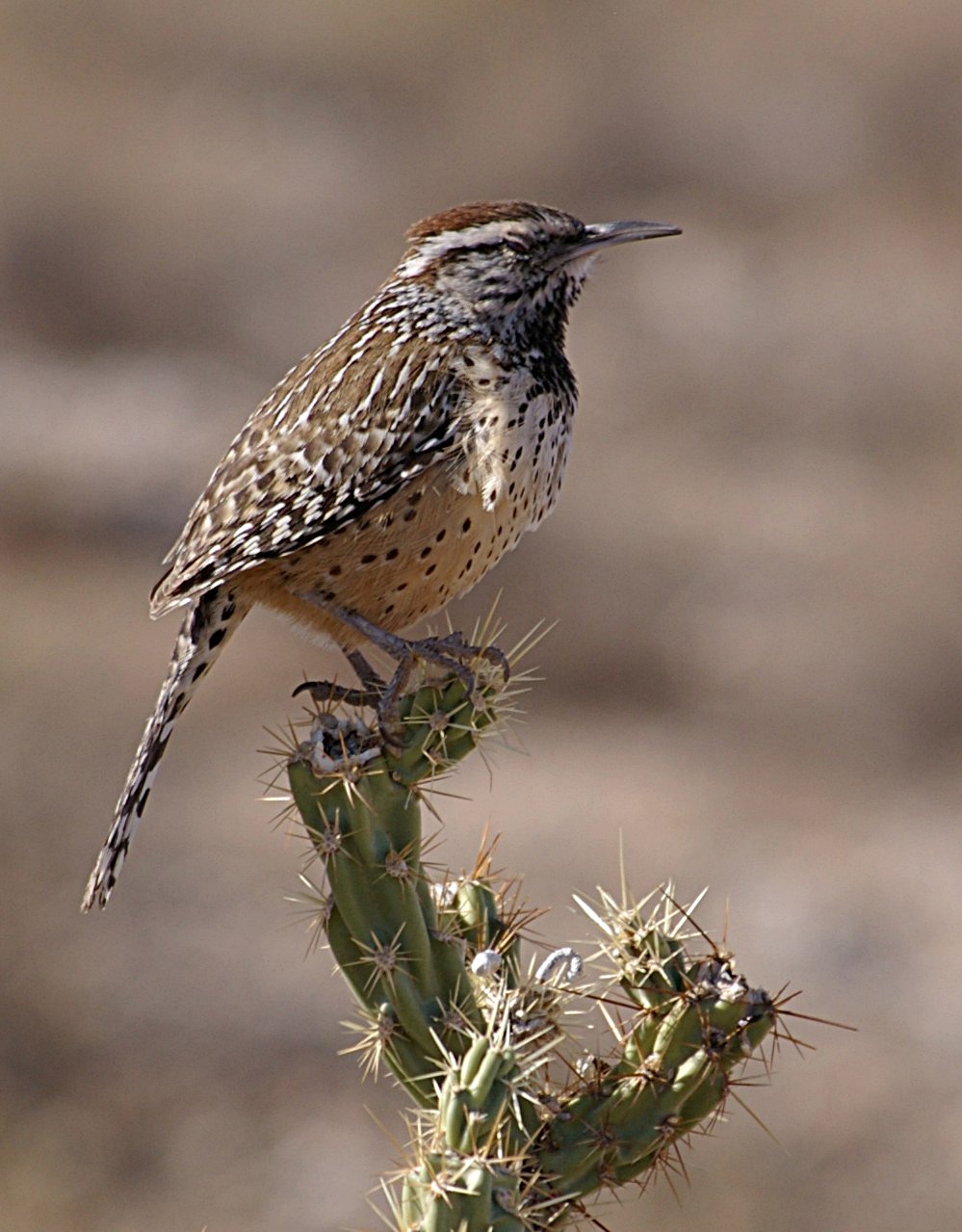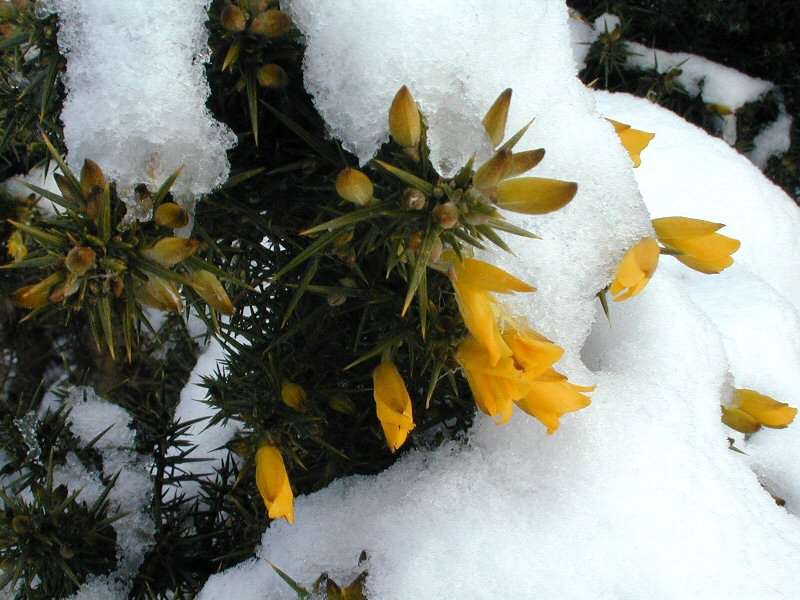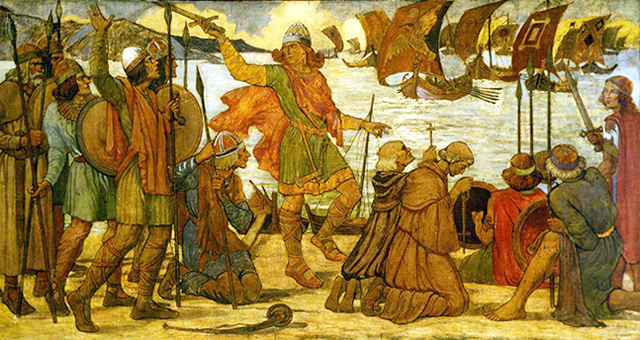|
Wrenboys
Wren Day (), or Hunt the Wren Day (), is an Irish and Manx custom on 26 December, Saint Stephen's Day (known in most of Ulster as Boxing Day). Traditionally, men and boys hunted a wren, which was revered as the 'king of the birds'. They displayed it on top of a staff decorated with holly, ivy and ribbons, or in a decorated box on top of a pole. This was paraded around the neighbourhood by a group of 'Wrenboys'—typically dressed in straw masks, greenery and colourful motley clothing—who sang songs and played music in exchange for donations. This was meant to ensure prosperity for the coming year. Afterwards, the wren was buried. On the Isle of Man, they held a funeral for the wren and danced around a 'wren pole'. There were similar New Year traditions in parts of western Britain and France until the nineteenth century. There are several folk tales about the origin of the wren hunt. It is speculated that the tradition derives from ancient Celtic paganism and was originally a ... [...More Info...] [...Related Items...] OR: [Wikipedia] [Google] [Baidu] |
Saint Stephen's Day
Saint Stephen's Day, also called the Feast of Saint Stephen, is a Christian saint's day to commemorate Saint Stephen, the first Christian martyr or protomartyr, celebrated on 26 December in Western Christianity and 27 December in Eastern Christianity. The Eastern Orthodox churches that adhere to the Julian calendar mark Saint Stephen's Day on 27 December according to that calendar, which places it on 9 January of the Gregorian calendar used in civil contexts. In Western Christian denominations, Saint Stephen's Day marks the second day of Christmastide. It is an official public holiday in Alsace-Moselle, Austria, the Balearic Islands, Bosnia and Herzegovina, Catalonia, Croatia, the Czech Republic, Denmark, Estonia, Finland, Germany, Hungary, Ireland, Italy, Luxembourg, Madeira, Montenegro, North Macedonia, Norway, Poland, Romania, Serbia, Slovakia, Slovenia, Sweden, Ukraine, Switzerland and Newfoundland. The date is also a public holiday in those countries that celebrate B ... [...More Info...] [...Related Items...] OR: [Wikipedia] [Google] [Baidu] |
Hobby Horse
In folklore, a hobby horse is a costumed character that features in some traditional seasonal customs, processions and similar observances around the world. In England, they are particularly associated with May Day celebrations, mummers' plays and the Morris dance. Etymology The word ''hobby'' is glossed by the OED as "a small or middle-sized horse; an ambling or pacing horse; a pony". The word is attested in English from the 14th century, as Middle English ''hobyn''. Old French had or , whence Modern French and Italian . But the Old French term is apparently adopted from English rather than vice versa. OED connects it to "the by-name ''Hobin'', ''Hobby''", a variant of ''Robin''" (compare the abbreviation ''Hob'' for ''Robert''). This appears to have been a name customarily given to a cart-horse, as attested by White Kennett in his ''Parochial Antiquities'' (1695), who stated that "Our ploughmen to some one of their cart-horses generally give the name of Hobin, the very word ... [...More Info...] [...Related Items...] OR: [Wikipedia] [Google] [Baidu] |
Wren Used For Hunt The Wren
Wrens are a family (biology), family, Troglodytidae, of small brown passerine birds. The family includes 96 species and is divided into 19 genus, genera. All species are restricted to the New World except for the Eurasian wren that is widely distributed in the Old World. In Anglophone, Anglophone regions, the Eurasian wren is commonly known simply as the "wren", as it is the originator of the name. The name ''wren'' has been applied to other, unrelated birds, particularly the New Zealand wrens (Acanthisittidae) and the Australian wrens (Maluridae). Most wrens are visually inconspicuous though they have loud and often complex songs. Exceptions include the relatively large members of the genus ''Campylorhynchus'', which can be quite bold in their behaviour. Wrens have short wings that are barred in most species, and they often hold their tails upright. Wrens are primarily insectivorous, eating insects, spiders and other small invertebrates, but many species also eat vegetable matt ... [...More Info...] [...Related Items...] OR: [Wikipedia] [Google] [Baidu] |
Keening
Keening (, ) is a traditional form of vocal lament for the dead in the Gaelic Celtic tradition, known to have taken place in Ireland and Scotland. Keening, which can be seen as a form of sean-nós singing, is performed in the Irish and Scottish Gaelic languages (the Scottish equivalent of keening is known as a coronach). Keening was once an integral part of the formal Irish funeral ritual, but declined from the 18th century and became almost completely extinct by the middle of the 20th century. Only a handful of authentic keening songs were recorded from traditional singers. Etymology "Keen" as a noun or verb comes from the Irish and Scottish Gaelic term ("to cry, to weep"), and references to it from the 7th, 8th, and 12th centuries are extensive. Probably at the origin of "couiner" in French. Melody and text The tune and lyrics rely on the repetition of a couple of basic motifs which can be variably extended or shortened. It seems that there was never an established ... [...More Info...] [...Related Items...] OR: [Wikipedia] [Google] [Baidu] |
Irish Language
Irish (Standard Irish: ), also known as Irish Gaelic or simply Gaelic ( ), is a Celtic language of the Indo-European language family. It is a member of the Goidelic languages of the Insular Celtic sub branch of the family and is indigenous language, indigenous to the island of Ireland. It was the majority of the population's first language until the 19th century, when English (language), English gradually became dominant, particularly in the last decades of the century, in what is sometimes characterised as a result of linguistic imperialism. Today, Irish is still commonly spoken as a first language in Ireland's Gaeltacht regions, in which 2% of Ireland's population lived in 2022. The total number of people (aged 3 and over) in Ireland who declared they could speak Irish in April 2022 was 1,873,997, representing 40% of respondents, but of these, 472,887 said they never spoke it and a further 551,993 said they only spoke it within the education system. Linguistic analyses o ... [...More Info...] [...Related Items...] OR: [Wikipedia] [Google] [Baidu] |
English Language
English is a West Germanic language that developed in early medieval England and has since become a English as a lingua franca, global lingua franca. The namesake of the language is the Angles (tribe), Angles, one of the Germanic peoples that Anglo-Saxon settlement of Britain, migrated to Britain after its End of Roman rule in Britain, Roman occupiers left. English is the list of languages by total number of speakers, most spoken language in the world, primarily due to the global influences of the former British Empire (succeeded by the Commonwealth of Nations) and the United States. English is the list of languages by number of native speakers, third-most spoken native language, after Mandarin Chinese and Spanish language, Spanish; it is also the most widely learned second language in the world, with more second-language speakers than native speakers. English is either the official language or one of the official languages in list of countries and territories where English ... [...More Info...] [...Related Items...] OR: [Wikipedia] [Google] [Baidu] |
Macaronic Song
Macaronic language is any expression using a mixture of languages, particularly bilingual puns or situations in which the languages are otherwise used in the same context (rather than simply discrete segments of a text being in different languages). Hybrid words are effectively "internally macaronic". In spoken language, code-switching is using more than one language or dialect within the same conversation. Macaronic Latin in particular is a jumbled jargon made up of vernacular words given Latin endings or of Latin words mixed with the vernacular in a pastiche (compare dog Latin). The word ''macaronic'' comes from the Neo-Latin ''macaronicus'', which is from the Italian ''maccarone'', or "dumpling", regarded as coarse peasant fare. It is generally derogatory and used when the mixing of languages has a humorous or satirical intent or effect but is sometimes applied to more serious mixed-language literature. History Mixed Latin-vernacular lyrics in medieval Europe Texts that mix ... [...More Info...] [...Related Items...] OR: [Wikipedia] [Google] [Baidu] |
Joe Heaney
Joe Heaney (AKA Joe Éinniú; Irish: Seosamh Ó hÉanaí) (1 October 1919 – 1 May 1984) was an Irish traditional ( sean nós) singer from Connemara, County Galway, Ireland. He spent most of his adult life abroad, living in England, Scotland and New York City, in the course of which he recorded hundreds of songs. Biography Heaney was born in Carna, a village in Connemara, County Galway, along the west coast of Ireland. This is an Irish-speaking district. He said he started singing at the age of five, but his shyness kept him from singing in public until he was 20. He learned English at school in Carna. When he was 16 years old, he won a scholarship to attend school in Dublin. While there he won first and second prizes at a national singing competition. Most of his repertoire (estimated to exceed 500 songs) was learned while growing up in Carna. In 1949, he went to London where he worked on building sites and became involved in the folk-music scene. He recorded for the Topic a ... [...More Info...] [...Related Items...] OR: [Wikipedia] [Google] [Baidu] |
Sean-nós Singing
singing ( , ; Irish language, Irish for 'old style') is A cappella, unaccompanied, Irish traditional music, traditional Irish vocal music usually performed in the Irish language. singing usually involves very long melodic Phrase (music), phrases with highly Ornament (music), ornamented and melismatic melodic lines, differing greatly from Folk music, traditional folk singing elsewhere in Ireland, although there is significant regional variation within Ireland. songs cover a range of genres, from love song to lament to lullaby, traditionally with a strong focus on conveying the relevant emotion of the given song. The term , which simply means '[in the] old way', is a vague term that can also refer to Sean nós (other), various other traditional activities, musical and non-musical. The musician and academic Tomás Ó Canainn said: ...no aspect of Irish music can be fully understood without a deep appreciation of singing. It is the key which opens every lock. The o ... [...More Info...] [...Related Items...] OR: [Wikipedia] [Google] [Baidu] |
Furze
''Ulex'' (commonly known as gorse, furze, or whin) is a genus of flowering plants in the family Fabaceae. The genus comprises about 20 species of thorny evergreen shrubs in the subfamily Faboideae of the pea family Fabaceae. The species are native to parts of western Europe and northwest Africa, with the majority of species in Iberia. Gorse is closely related to the brooms, and like them, it has green stems, very small leaves and is adapted to dry growing conditions. However, it differs from the brooms in its extreme thorniness, the shoots being modified into branched thorns long, which almost wholly replace the leaves as the plant's functioning photosynthetic organs. The leaves of young plants are trifoliate, but in mature plants, they are reduced to scales or small spines. All the species have yellow flowers, generally showy, some with a very long flowering season. Species The greatest diversity of ''Ulex'' species is found in the Atlantic portion of the Iberian Penins ... [...More Info...] [...Related Items...] OR: [Wikipedia] [Google] [Baidu] |
Christmas Is Coming
"Christmas Is Coming" is a traditional nursery rhyme and Christmas song frequently sung as a round. It is listed as number 12817 in the Roud Folk Song Index. Lyrics The following are common representative lyrics: :Christmas is coming, the goose is getting fat :Please oput a penny in the old man's hat :If you haven't got a penny, hena ha'penny will do :If you haven't got a ha'penny, henGod bless you! Although the lyrics begin appearing in print in 1885 and 1886, they are presented without an author and in a way of cataloging something that was already mostly common knowledge of the time. Some sources have variants of these lyrics and additional verses. Music The common melody paired with the lyrics is usually simply listed as a traditional English carol, while some sources curiously list the author Edith Nesbit Bland as its composer. \layout \relative \addlyrics Another common melody, usually listed as a traditional English carol, is differentiated by an arrange ... [...More Info...] [...Related Items...] OR: [Wikipedia] [Google] [Baidu] |
County Dublin
County Dublin ( or ) is a Counties of Ireland, county in Republic of Ireland, Ireland, and holds its capital city, Dublin. It is located on the island's east coast, within the Provinces of Ireland, province of Leinster. Until 1994, County Dublin (excluding the city) was a single Local government in the Republic of Ireland, local government area; in that year, the county council was divided into three new administrative counties: Dún Laoghaire–Rathdown, Fingal and South Dublin. The three administrative counties together with Dublin City proper form a NUTS III NUTS statistical regions of Ireland, statistical region of Ireland (coded IE061). County Dublin remains a single administrative unit for the purposes of the courts (including the Dublin County Sheriff, but excluding the bailiwick of the Dublin City Sheriff) and Dublin County combined with Dublin City forms the Judicial County of Dublin, including Dublin Circuit Court, the Dublin County Registrar and the Dublin Metropolitan ... [...More Info...] [...Related Items...] OR: [Wikipedia] [Google] [Baidu] |








